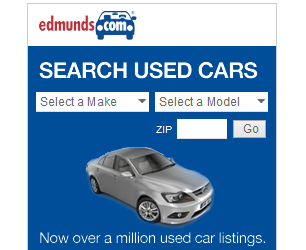What are the risks and benefits of purchasing a vehicle through a lien sale?
Valerie Raskovic

In this article we are going to identify all the potential Risks and Benefits of buying a pre-owned vehicle without a title through a process of a lien sale.
What is a Lien Sale?
To better understand the lien sale process, it is important that we clearly identify what occurs when a lien is placed on a vehicle. There are multiple types of liens. A lien is often placed on the vehicle by banks and lenders when an outstanding loan is pending on the vehicle. In cases of mechanic’s liens, it is usually related to an unpaid debt that is uncured through the process of vehicle repair, storage or towing. When the debt goes unpaid the business may place a lien on such a vehicle to recover the debt. The lienholder retains the legal claim to the vehicle’s ownership until the loan is fully paid off or the vehicle is sold. In some cases, the lienholder might not have the title because it is held by the vehicle owner, creating a bit of a dilemma for the new buyer.
There are 2 types of lien sales: lien sale through owner and lien sale through lienholder. Both options have similar benefits and drawbacks.
Potential Benefits of a Lien Sale:
- Lower Purchase Price:
- One of the top reasons why people buy vehicles through lien sales is the price reductions. Typically, sellers are more willing to offer and accept a lower price to quickly sell the vehicle and pay off the debt owed by the owner. This can result in a significant discount compared to the market value.
- Negotiation Leverage: The seller's need to pay off the debt can give you more leverage in negotiations, potentially leading to a better deal.
- Access to newer and lower mileage vehicles:
- Late-Model Vehicles: Lien sales often involve newer or late-model vehicles that might be out of your budget otherwise. This can be an opportunity to drive a higher-quality car at a lower cost.
- Low Mileage: Some lien sale vehicles may have low mileage, as they might have been owned by individuals who didn't use them frequently. Often times, once the vehicle is repossessed by the lienholder, it may be in storage for months or even years not being used.
- Immediate Availability:
- Motivated Seller: When you buy a vehicle from a lienholder, you can be confident that they have no sentimental attachment to the car and may not be using it at all. Additionally, storing the vehicle can be a burden, which means the seller is more motivated to make a deal quickly on your terms. If you need a car quickly, a lien sale can be a faster option compared to waiting for a traditional sale process.
Risks of a Lien Sale
- Title Issues:
- Lack of Title: The most significant risk of purchasing a car through a lien sale is the lack of a clear title. Without a title, you cannot legally transfer ownership, register the vehicle or insure it. You will need to submit the legal lien document to prove ownership at your local DMV (Department of Motor Vehicles) and request a new title. This can be a lengthy and troublesome process. It is advisable to check your local lien sale-related laws to make sure that the seller has all of the proper lien sale-related paperwork before you commit to the purchase.
- Title Transfer Delays: If you are buying the vehicle from the owner and not the lienholder then you will need to wait until the lien is paid off before a title can be issued to the seller. Even if the seller pays off the lien, the process of transferring the title can be slow and complicated, leading to delays in your ability to use the vehicle.
- Financial Risks:
- Hidden Liens: There may be additional liens or financial obligations on the vehicle that you are not aware of. These can become your responsibility once you take possession. This is why it is highly advisable to check the vehicle VIN (Vehicle Identification Number) with your local DMV and run a full vehicle history report prior to committing to the purchase.
- Payment Responsibility: In the cases where the seller is the vehicle's registered owner with a third-party lienholder you will have to rely on the seller to use the money you are giving them to pay the lienholder. In the case the seller fails to pay off the lien, the financial institution can repossess the vehicle, leaving you without a car and without a refund.
- Legal Risks:
- Fraud: Lien sales can be a target for fraud. Scammers might sell a vehicle with a fake title or claim to have paid off the lien when they have not. Fraudsters have also been known to sell stolen vehicles through forged or non-matching lien documents. This is why it is so important to always match the VIN on the paperwork to the VIN displayed on the actual vehicles. Request the seller to provide his or her legal identification document, such as driver’s license. Take a picture of the document to ensure you have some recourse in case the seller is not authorized to sell the vehicle.
- Liability: With lien sales it can be somewhat difficult to know what you are buying. In some cases, a vehicle may be represented as having a clean title and being accident-free, coming back as a salvage title when the new owner applies to get the title in his or her name. The vehicle may have a history of accidents or issues that were not disclosed; the seller could be liable for any damages or repairs.
- Insurance and Registration:
- Insurance Issues: Insurance companies may be hesitant to provide coverage for a vehicle without a clear title, leaving the seller without coverage.
- Registration Problems: You may face difficulties registering the vehicle with the DMV when there is money owed by the previous owner to the DMV or in cases when the title has issues. These issues can lead to legal problems and unexpected fees. This is why it is so vital to check the vehicle VIN with your local DMV prior to committing to the purchase.
How to Mitigate Risks?
Thorough Research:
- Vehicle History Report: Obtain a comprehensive vehicle history report from services like VinCheckUp.com to check for any hidden issues or liens.
- Title Check: Run a title check to verify the vehicle's ownership and lien status. Use a reputable service or the DMV to ensure the information is accurate.
- Get all the Proper Legal Documentation: Research the documents required for a lien sale in your area. Ensure that the seller provides a detailed bill of sale that includes the vehicle's VIN, the sale price, and the terms of the sale. Verify that the seller has a plan to pay off the lien and obtain a lien release from the lienholder. Get this in writing.
- Use an Escrow Service: Consider using an escrow service to hold the payment until the title is transferred and the lien is released. This can provide an additional layer of protection.
- Get a Professional Inspection: Have a trusted mechanic inspect the vehicle to identify any hidden issues or problems that might not be immediately apparent.
While buying a pre-owned new car through a lien sale can sometimes lead to a great deal, it is not without its risks. The lack of a clear title, potential financial and legal issues, and difficulties with insurance and registration are significant concerns. However, with thorough research, legal documentation and the use of escrow services, you can mitigate some of these risks and make an informed decision.
Read more articles

